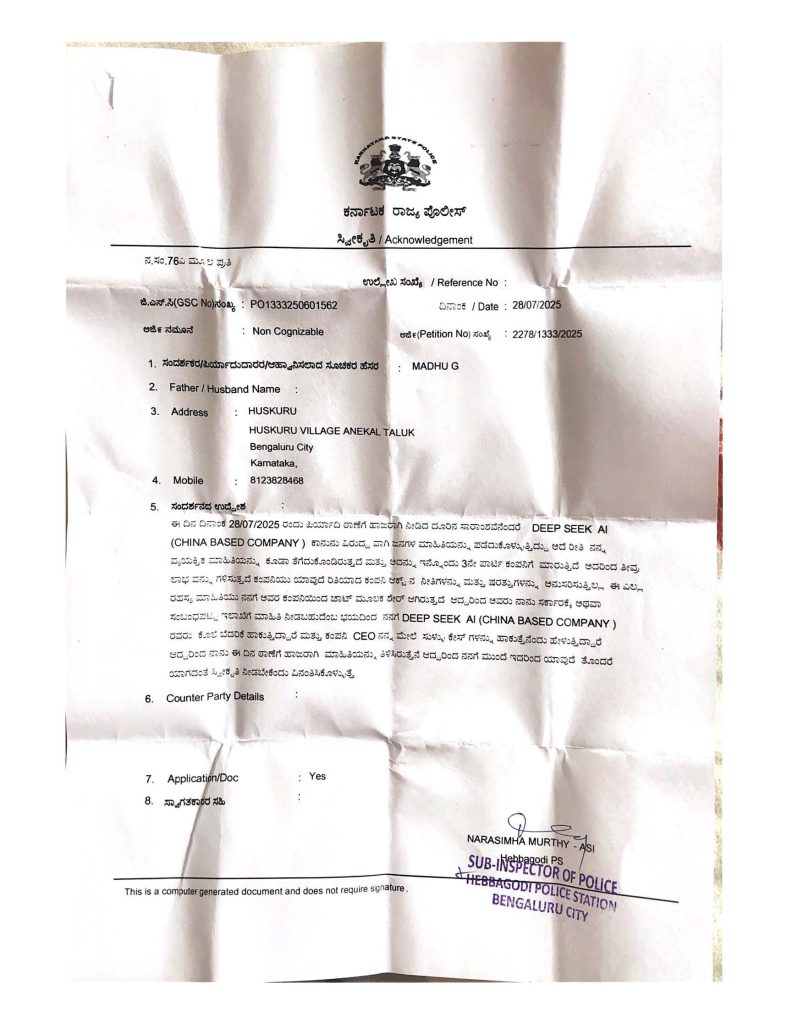The Promotion and Regulation of Online Gaming Act 2025 which was passed by the Loksabha on August 20, 2025 and by Rajyasabha on 21st August 2025, and has now received the presidential assent on August 22, 2025.
Hence the Bill is now considered an Act.
However, as is customary, “It shall come into force on such date as the Central Government may, by notification in the Official Gazette, appoint”.
Since the Bill also requires a new Authority to be constituted with a Chairman and a few members along with the office and a secretariat. Hence the actual notification may take a little time.
The critical part of the Act are the three sections 5,6 and 7 which prohibits “Online money Game” and related advertising and Fintech/Banking services.
Under Section 5 of the Act
No person shall offer, aid, abet, induce or otherwise indulge or engage in the offering of online money game and online money gaming service
Under Section 6 of the Act
No person shall make, cause to be made, aid, abet, induce, or otherwise be involved in the making or causing to be made any advertisement, in any media including electronic means of communication, which directly or indirectly promotes or induces any person to play any online money game or indulge in any activity
promoting online money gaming.
Under Section 7 of the Act
No bank, financial institution, or any other person facilitating financial transactions or authorisation of funds shall engage in, permit, aid, abet, induce or otherwise facilitate any transaction or authorisation of funds towards payment for any online money gaming service
The “online money game” means
an online game, irrespective of whether such game is based on skill, chance, or both, played by a user by paying fees, depositing money or other stakes in expectation of winning which entails monetary and other enrichment in return of money or other stakes; but shall not include any e-sports.
Penalties under sections 5 and 7 shall be punished with an imprisonment upto 3 years and fine of Rs 1 crore or both. They will be considered “Cognizable”. For second and subsequent commission of the offence the penalty would be imprisonment of upto 5 years and fine upto Rs 2 crores or both.
Penalties under Section 6 will attract an imprisonment of Upto 2 years and fine upto Rs 50 lakhs. For second and subsequent commission of the offence the punishment shall be not less thatn 2 years of imprisonment and may extend to 3 years and the fine shall not be less than Rs 50 lakhs and may extend to Rs 1 crore.
Under Section 11
Where an offence has been committed by a company, every person who, at the time the offence was committed was in charge of, and was responsible to, the company for the conduct of that part of the business of the company as well as the company, shall be liable to be proceeded against and punished accordingly.
Nothing contained above shall render any such person liable to be proceeded against and punished accordingly under this Act, if he proves that the offence was committed without his knowledge or that he had exercised all due diligence to prevent the commission of such offence.
Where an offence under this Act has been committed by a company and it is proved that the offence has been committed with the consent or connivance of, or is attributable to any neglect on the part of any director, manager, secretary or other officer of the company, such director, manager, secretary or other officer shall be deemed to be guilty of the offence and shall be liable to be proceeded against and punished accordingly
Provided that nothing in this sub-section shall hold an independent director or a non-executive director of a company who is not involved in the actual decision making, liable for such offence.
For the purposes of this section, the expressions—
(a) “company” means a body corporate, and includes, a firm and an association of persons or a body of individuals whether incorporated or not; and
(b) “director”, in relation to (i) a firm, means a partner in the firm and in any association of persons or a body of individuals, means any member controlling its affairs thereof.
Under Section 12,
Any person who fails to comply with any direction or order issued by the Central Government or the Authority or agency shall be liable to penalty which may extend to ten lakh rupees or may include suspension or cancellation of registration, and prohibition from offering, facilitating or promoting such games for such period as may be determined by the Central Government or the Authority
(PS: Above provision indicates that there shall be a “Registration” for authorized gaming entities).
There was already a notification under ITA 2000 for Online Gaming Intermediaries. At present it is not clear if these will be withdrawn.
Until the Gaming Act is notified, the ITA 2000 regulation will be considered as applicable regulation.
Considering the liability of the executives, it is considered necessary for Gaming Companies to have a “Compliance Audit” to express their “Due Diligence”.
Since DGPSI extends to compliance of DPDPA along with other relevant laws, including ITA 2000, compliance of this law will also become part of the DGPSI and DGPSI-AI.
Naavi









